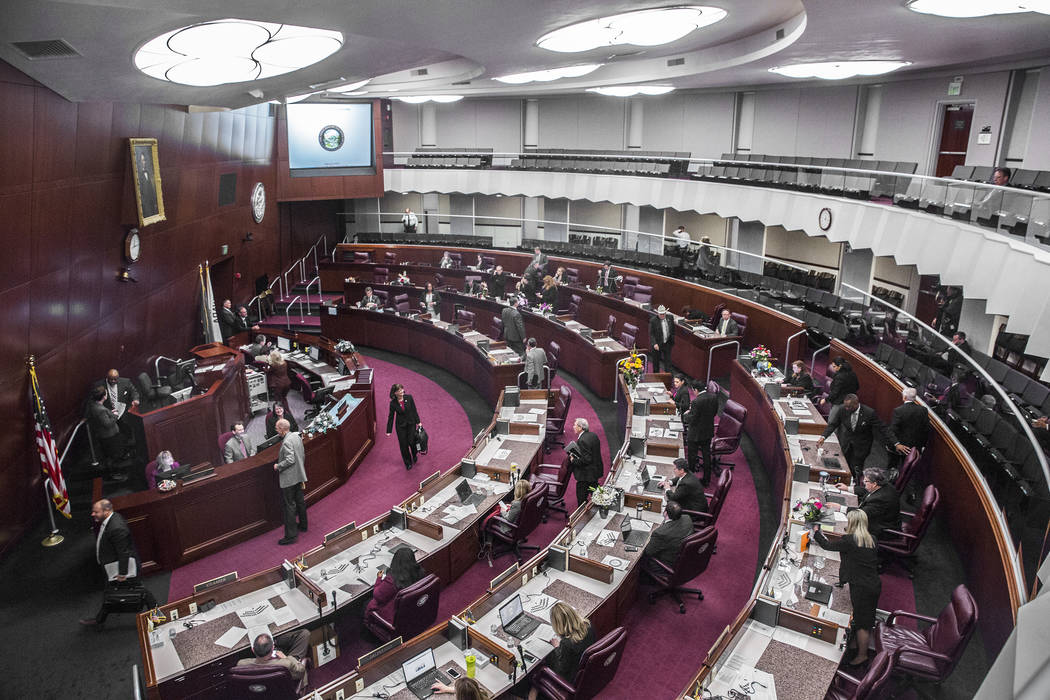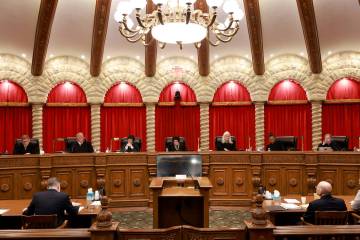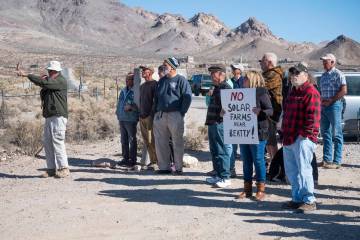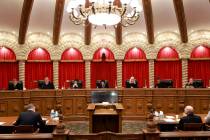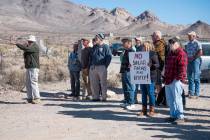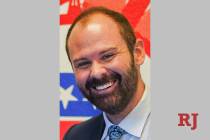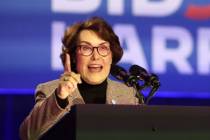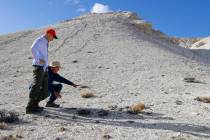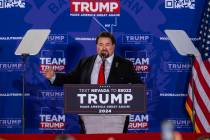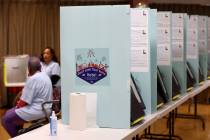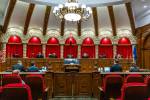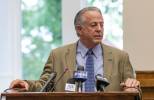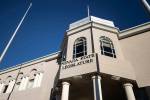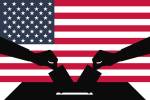Nevada legislators not inclined to open their communications to the public
A series of kerfuffles involving politicians’ emails has sparked a nationwide call for elected officials to embrace transparency. But members of the Nevada Legislature show no intention of opening their records to the public.
The Legislature tells governmental agencies statewide what is and is not a public record. But members of the Legislature are exempt from those very laws.
Unlike their municipal counterparts, state legislators have little to no public paper trail. Their emails, appointment calendars that detail which lobbyist or lawmaker they meet and all other forms of communications are not bound by Nevada’s open records rules.
State Sen. Tick Segerblom, D-Las Vegas, asked to have a bill drafted for the 2017 session that, in part, would have made legislators emails and calendars — during the biennial session — public record. But the Legislative Counsel Bureau, the legislators’ attorney, nixed the plan.
“My lawyers said we can’t pass a law that regulates our emails,” Segerblom told the Las Vegas Review-Journal on Tuesday.
The American Civil Liberties Union argues that the Legislature does have that power and plans to continue the push for transparency.
The ACLU’s proposed amendment to Senate Bill 170, set to be introduced Wednesday, sets the stage for a public debate on whether citizen legislators who meet for only 120 days every other year should be forced to make their communications available to the public. The hearing falls during national Sunshine Week, which promotes the importance of government transparency and access to public information.
Segerblom’s request eventually became a broad records bill that would revise fee schedules and timeframes for public records requests. His request to add the Legislature to the list of government agencies subject to public records requests didn’t make the final cut.
PUBLIC’S “RIGHT TO KNOW”
The push to open communications to the public would undo the last-minute efforts from lawmakers and the Legislative Counsel Bureau from the 2015 session.
AB496, passed during the 2015 session’s frantic final days, made an already shielded Legislature virtually impenetrable to public scrutiny. In essence, the law cemented the fact that legislators’ emails, calendars and other communications — items considered public for almost all other elected officials in Nevada— stayed off-limits to public eyes.
The law’s impact was not fully understood until last year, when The Associated Press requested the emails and calendars of four lawmakers. The response was a 28-page memo from the LCB detailing why those records were unavailable.
The reason: The Legislature is not considered a “governmental entity,” according to the LCB memo, and making those communications public could create a “chilling effect” where citizens are less willing to talk to legislators for fear of the repercussions caused by the conversation coming to light.
But the ACLU isn’t ready to let the fight die.
On Wednesday, it plans to introduce an amendment to SB170 that would put Segerblom’s request back into the bill.
“The public has a right to know how the government participates in the lawmaking process,” said Holly Welborn, policy director for the ACLU.
The amendment would make legislators’ emails and calendars public record as long as they are not covered by an exemption such as attorney-client privilege. That measure would apply only to emails or records generated during the 120-day biennial lawmaking session or special sessions.
PUSHBACK EXPECTED
“We’re going to run into a lot of resistance,” Welborn warned.
State Sen. Aaron Ford, D-Las Vegas, who is known for being outspoken, said his position hasn’t changed since he voted for AB496.
“I’ll refer you back to the memo,” the Senate majority leader told the Review-Journal when asked this week if legislators’ emails should be public.
Assembly Minority Leader Paul Anderson, R-Las Vegas, said he leans toward emails of legislators not being public because of the negotiation that can be involved in lawmaking.
Assemblyman Chris Edwards, R-Las Vegas, said confidential communications give constituents and whistleblowers the confidence to email a lawmaker about a problem without worrying about their employer finding out.
NOT UNCOMMON
State legislators being immune to public records request is not uncommon, said David Snyder, executive director for the First Amendment Coalition.
“It’s fairly common for legislators to carve out for themselves a special exception to the general rule of public access to records,” Snyder said.
Some of the LCB’s arguments against making emails public are valid, Snyder said, including the “chilling effect.”
But, he added, having a blanket ban on public access can make it appear lawmakers are not operating for the public’s benefit.
“Democracy doesn’t function very well without transparency,” Snyder said.
Review-Journal writer Ben Botkin contributed to this report. Contact Colton Lochhead at clochhead@reviewjournal.com or 702-383-4638. Follow @ColtonLochhead on Twitter.
Reasons why Nevada legislators' emails and calendars are not considered public record, according to a March 2018 memo from the Legislative Counsel Bureau:
-
"The Legislature and its agencies, members, officers and employees do not come within the statutory definition of 'governmental entity' in the Public Records Law"
-
It would "conflict and interfere with the constitutional doctrines of separation of powers and legislative privilege and immunity"
- Legislators' emails and calendars "do not come within the ordinary definition of 'public books and public records' as those terms are used in the Public Records Law."



